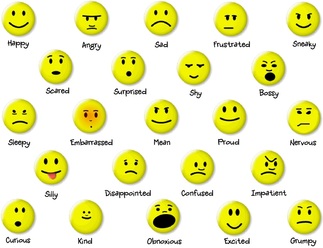 Last week I talked about indirect techniques. There was a reason for that. I had just treated a patient using these very gentle techniques and, as well as having a powerful physical effect, there was a dramatic emotional release. I was treating an area that the patient said had been uncomfortable since school. As the tissues released, the patient burst into tears and described how, all the way through my treating that area, they were thinking about a particular traumatic event 32 years ago. They thought of it in terms of energy being released. I'm quite a prosaic osteopath, I'm not into energy flows, I have no proof they don’t exist but they are outside my expertise if they do. I do, however, understand that smells, sounds and sights can trigger memories, so why not touch or even altered feedback from one’s own tissues…The idea of tissues being, on stretch or poorly nourished and therefore sending a low level nociceptive (irritated nerve signal) feedback for 32 years might seem unlikely but could it just be at the extreme end of a regular phenomenon? After all, many of us will have lived with ‘that little uncomfortable bit in my back’ for years. So it is not beyond the realms of fairly normal science to imagine that a postural physical change could potentially trigger a strong memory and the emotions that go with it, but how could the original postural insult be connected with the memory to start with? It might be obvious if there had been a car crash or some other physical trauma that created a memory, but this was an emotional trauma with no known physical injury. Someone wise once described the body as the graveyard of human emotions, there are the obvious postural effects; slump in despair too long and it becomes your habitual posture, too depressed to get out and do some exercise you can expect deleterious effects, everything from facial expressions that betray our underlying personality to the damaging physiological changes wrought by long-term over-production of cortisol in response to stress, these are all physical changes in response, either directly or indirectly, to our emotions and they all leave their tell-tale marks on the musculoskeletal system… But what about a child’s sob on the saddest day of their life so far, could it cause something as simple as a minor rib dysfunction that has remained as a mild discomfort, rarely felt, but ever present for 32 years? I can’t say for sure but it doesn't seem an unreasonable hypothesis.
3 Comments
Grace Whistler
16/2/2021 11:45:04
I'm a student of osteopathy and I stumbled across this post trying to find the origin of your title quote for a research paper. Do you have any idea where Irvin (spelled with a 'V'!) Korr wrote/said this?
Reply
16/2/2021 12:15:02
Sorry Grace it was remembered, I think from an NMS class when I was studying but a Google search doesn't bring up anything for that phrase so I have clearly misremembered it. It may have been the tutor's own phrase. I'm going to change the post to 'someone once said' until I find out who it was
Reply
Grace Whistler
16/2/2021 12:20:51
I've heard it said too by a few people - so either it's doing the rounds and is completely made up, or I'll get to the bottom of it! I've emailed a tutor who might know, will post back if I hear anything of interest! Thanks for trying :D Your comment will be posted after it is approved.
Leave a Reply. |
Archives
February 2024
AuthorDamian is the principal osteopath at Vauxhall Village Osteopathy and Oval Osteopathy Categories
All
|


 RSS Feed
RSS Feed


